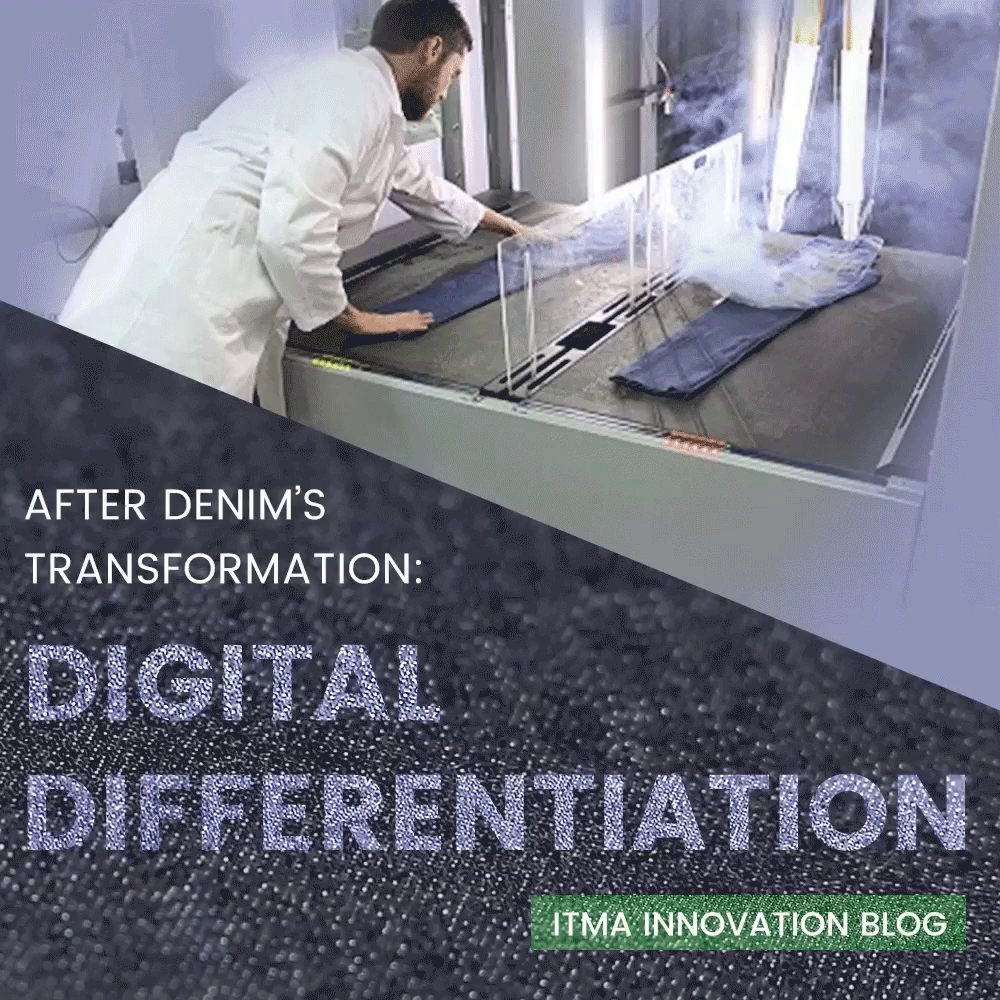After denim's transformation: Digital differentiation

16 22
September 2027
Messegelaende HannoverGermany

I'm not a fan of the word "trend" because it sounds temporary; instead, I prefer to focus on solutions that lead to lasting, systemic change. But if I had to choose three current "mega-trends" in the fashion industry, they would have to be: data, transparency, and collective action.
The pandemic highlighted many systemic problems in our trade. Although these challenges have existed for a long time, COVID-19 brought them to the forefront in a way we haven’t seen before. The ripple effects throughout the value chain showed us what happens when systems start to break down, but it also showed the speed and agility that some companies reacted with and how this type of collective action can have a positive impact.
In addition, the climate crisis highlights the need and urgency to accelerate our work in addressing these problems. Instead of feeling powerless because of the scale and magnitude of the issues or working in isolation with limited resources, we have an opportunity to rebuild better, learning from the past and working together as a global community to drive collective action and industry transformation.
First, we need to start by making sure we are leveraging standardised and credible data throughout the worldwide value chain - not an easy thing to do. Many companies have a relationship with their tier one and tier two suppliers, but most cannot trace their supply chain beyond that and don’t have a clear understanding of holistic performance.
To put it simply, you can't manage and change what you don't measure.
Our work at the Sustainable Apparel Coalition (SAC) is helping to standardise sustainability performance and go deeper into the value chain by leveraging credible data and technology. As consumers demand better information and policymakers begin to mandate social and environmental standards and progress on these issues, it is increasingly crucial for a company to measure current performance, identify impact areas and address inefficiencies and gaps through coordinated action. Businesses can be more proactive and create greater resilience by taking an active role in addressing social and environmental challenges, or they can play catch-up later on.
For a company to understand where they are in their sustainability journey, they need tools to assess their performance. The SAC spent the last decade working collaboratively to provide a solution to this by developing the Higg Index, a suite of tools for the standardised measurement of value chain sustainability, in partnership with SAC members: brands, retailers, manufacturers, academics, NGOs, stakeholders, and industry experts. These tools measure environmental and social labour impacts across the value chain, and the SAC works with third-party partners to verify the data to ensure it is credible and can be communicated in a standardised way.
Audit fatigue is very real and resource-intensive. We've collaborated with the Social & Labour Convergence Programme (SLCP), leveraging their Converged Assessment Framework (CAF) as the basis of the Higg Facility Social Labour Module to eliminate duplicative and repetitive proprietary social and labour audits with a single verified assessment that all stakeholders can use. This drives greater alignment within the industry on standardised tools and allows organisations to focus time and resources on driving performance improvement.
However, standardised data is more meaningful with increased transparency.
The ability to communicate sustainability data publicly is what's needed to transform the industry and help consumers and stakeholders make more informed decisions. In partnership with our members, we are developing what will eventually be a holistic system for communicating sustainability performance.
Ease of use, credibility, and accessibility are paramount to its success. Helping all organisations across the industry build and adopt a comprehensive system for performance assessment, decision-making, and collective action — regardless of where they are on the path to sustainability — is crucial to our work and helps companies become more accountable.
We can't solve the industry's systemic problems alone, and we don't have to. Data is a precursor to insights, which is a precursor to collective action. As we develop standardised ways to communicate performance transparently to all stakeholders, we can deliver greater insights that inspire both individual and collective action. By leveraging credible data, companies can determine what else they need to do as they begin to better understand their social and environmental performance along the value chain. It opens the door to increased innovations and new collaborations; partnership becomes the new leadership.
The SAC's bold and ambitious plan for the future involves all three of these key drivers: data, transparency, and collective action. They are vital to unlocking smart, scalable solutions to help us tackle the systemic challenges that exist. They are also imperative in steering the industry towards a more sustainable and equitable future.

Subscribe to our mailing list and stay up-to-date with news and developments in ITMA and the textile and garment industry.